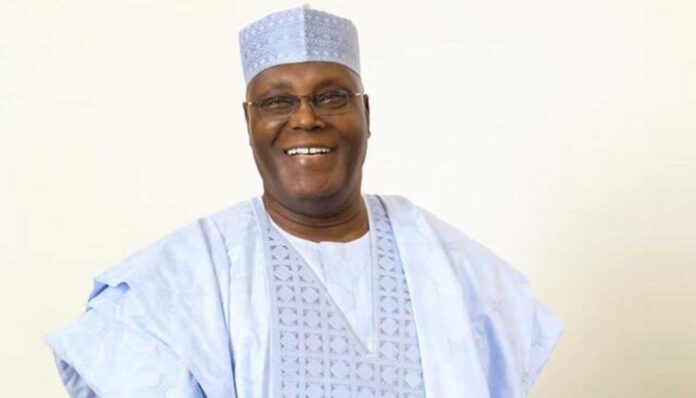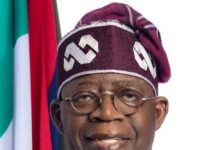Fresh evidence motion not statute-barred, Atiku replies Tinubu, APC, INEC
As the legal battle kicks off at the Supreme Court on Monday, surrounding the presidential election held on February 25, former Vice President Atiku Abubakar has asserted that there is no legal prohibition preventing the court from considering fresh evidence of forgery against President Bola Tinubu.
Atiku’s stance is outlined in his response to the objections raised by the Independent National Electoral Commission (INEC), Tinubu, and the All Progressives Congress (APC) regarding the submission of certain documents.
The documents in question are Tinubu’s academic records, which were provided to Atiku by Chicago State University on October 2, 2023.
These 32-page documents were released to the former Vice President following an order from Judge Nancy Maldonado of the District Court of Illinois, Eastern Division, Illinois, United States of America.
The U.S. court ruled in favour of Atiku’s request, believing that these documents could support his claim of forgery and perjury against Tinubu, the declared winner of the February 25 presidential election.
However, the respondents in this case argue that the Supreme Court cannot accept fresh evidence at this stage because the 180-day period, as prescribed by law for addressing petitions related to the February 25 presidential election, has expired.
Contrary to this, Atiku, through his lead counsel, Chief Chris Uche (SAN), asserts that “there is no such constitutional limit of 180 days on the lower court to hear and decide on a presidential election petition, which would prevent the Supreme Court from exercising its powers.”
According to the senior lawyer, “The parties agree that the Constitution is the fons et origo and the grundnorm, and supersedes any other legislation.”
Arguing further, Uche stated that while establishing the election tribunals to deal with election matters from Houses of Assembly, National Assembly, and Governorship elections, the Constitution gave the jurisdiction to entertain disputes from presidential elections only to the Court of Appeal.
“Thereafter, the Constitution was intentional and deliberate in setting the 180 days limit only for Election Tribunals, and not for the Court of Appeal. On the other hand, when it came to appeals, the Constitution clearly and expressly extended same to the Court of Appeal.
“The Constitution clearly excluded Court of Appeal in the preceding subsection,” he submitted.
Furthermore, Atiku argued that a cursory look at Section 285 of the Constitution reveals that the lower court that heard his petition was not an election tribunal, adding that the framers of the Constitution limited the application of the 180 days specifically to election tribunals by virtue of section 285(6), excluding the Court of Appeal.
“On the other hand, when it came to the next subsection, namely Section 285(7), they intentionally included and mentioned Court of Appeal. The trite maxim, my Lords, is “expressio unius est exclusio alterius”, meaning that the express mention of one thing in a statutory provision automatically excludes any other which otherwise would have been included by implication.
“Furthermore, when granting jurisdiction to the Court of Appeal to entertain presidential election petitions, the Constitution did not pretend that it was conferring the jurisdiction on a “tribunal”; it clearly gave the jurisdiction to the Court of Appeal. Thus, section 239(1) of the Constitution specifically provides thus:-
“Subject to the provisions of this Constitution, the Court of Appeal shall, to the exclusion of any other court of law in Nigeria, have original jurisdiction to hear and determine any question as to whether – (a) any person has been validity elected to the office of President or Vice President under this Constitution;”
Uche also noted that when conferring on the Supreme Court the jurisdiction to entertain appeals arising from decisions in presidential election petitions, the Constitution limited itself to “Court of Appeal” and made no mention of ‘tribunal’.
He cited Section 233 subsections (1) and (2)(e)(i) of the Constitution which provides that, “The Supreme Court shall have jurisdiction, to the exclusion of any other court of law in Nigeria, to hear and determine appeals from the Court of Appeal.
“An appeal shall lie from decisions of the Court of Appeal to the Supreme Court as of right in the following cases – (e) decisions on any question – (i) whether any person has been validly elected to the office of President or Vice President under this Constitution”.
Uche revealed that it was based on the above facts that the Presidential Election Petition Court itself administratively refused to be referred to as the “Presidential Election Petition Tribunal”, but the “Presidential Election Petition Court”.
While stating that it is in fact derogatory to refer to the Court of Appeal as a tribunal, the appellants/ applicants therefore “submit that there is no constitutional limitation to rob this Honourable Court of the jurisdiction to exercise its express powers under Order 2, Rule 12 of the Supreme Court Rules 1985 to receive this vital and constitutionally important fresh evidence relating to qualification of a candidate to contest election to the exalted office of President of the Federal Republic of Nigeria”.
While Atiku on one hand is alleging that the election which produced Tinubu as President was substantially flawed and should be nullified, on the other, he is claiming Tinubu should have been disqualified from contesting the poll on grounds of alleged forgery and perjury.
Atiku emphasized that the presentation of a forged certificate to INEC in an election automatically disqualifies a candidate for all time, no matter when presented.
“That the case is not whether 2nd Respondent attended Chicago State University but whether he presented a forged certificate to the Independent National Electoral Commission (INEC).
“That at the trial, a National Youth Service Corps certificate with serial number 173807 presented by the 2nd Respondent to the 1st Respondent was equally tendered by the Appellants/Applicants at the trial as “exhibit PBD 1A” with the name Tinubu Bola Adekunle, which is annexed herewith as exhibit J”.
Follow the Neptune Prime channel on WhatsApp:
Do you have breaking news, interview request, opinion, suggestion, or want your event covered? Email us at neptuneprime2233@gmail.com






